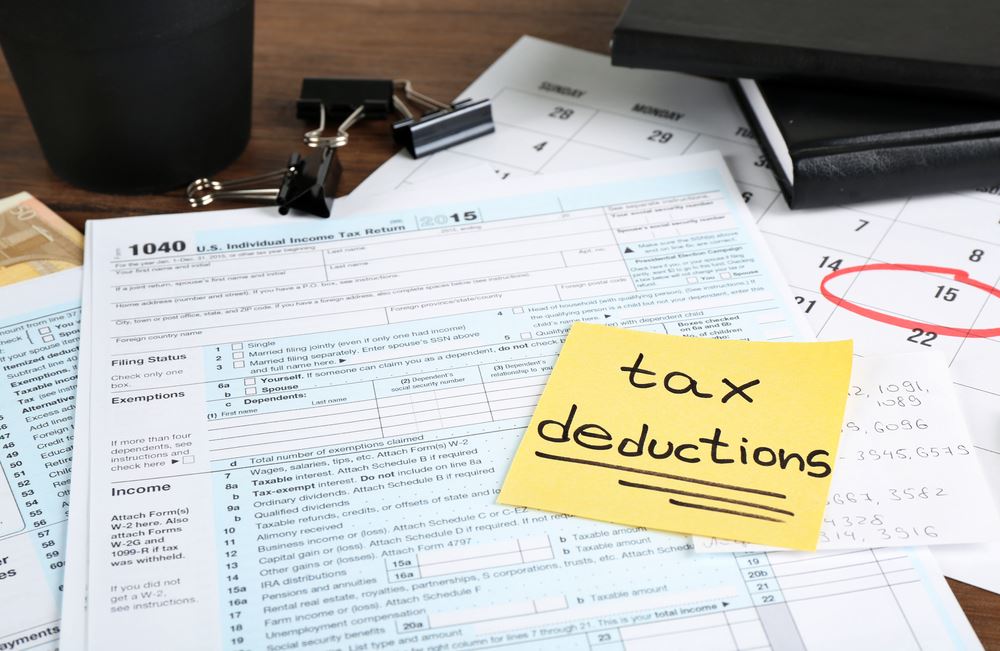Introduction
The purpose of this article is to first understand and establish that doctors, lawyers, investment advisors, and even accountants qualify for the Section 199A Qualified Business Income (“QBI”) Deduction despite being in a Specified Service Trade or Business and second to show you precisely how to calculate your QBI Deduction.
Specified Service Trade or Business
According to the IRS, a Specified Service Trade or Business (“SSTB”) is any trade or business providing services in the fields of health, law, accounting, actuarial science, performing arts, consulting, athletics, financial services, brokerage services, or any other trade or business where the taxpayer receives fees, compensation, or other income for endorsing products or services, for the use of the taxpayer’s image, likeness, name, signature, voice, trademark, or any other symbols associated with the taxpayer’s identity, or for appearing at an event or on radio, television, or another media format. In addition, the trades or businesses of investing and investment management, trading or dealing in securities, partnership interests, or commodities are specified trades and businesses. However, our firm’s legal position is that a Specified Service Trade or Business is much more limited than that.
Section 199A(d)(2)(A) defers to Section 1202(e)(3)(A) for the definition of a “qualified trade or business” for which there is no case law or clarifying regulations. The statute covers any trade or business “involving the performance of services in the fields of health, law… accounting, actuarial science, performing arts, consulting, athletics, financial services, brokerage services, or any trade or business where the principal asset of such trade or business is the reputation or skill of 1 or more of its employees.” This is where our firm can help.
For example, if your income is from conducting microorganism testing for hospitals or manufacturing drugs, is that the “performance of services” in the field of health? The IRS issued two Private Letter Rulings addressing this specific issue and concluded that the business were qualified. Most people would conclude that testing for microorganisms for hospitals[1] and manufacturing drugs[2] is in the field of health; however, the significance of these rulings is the fact that the IRS founds these businesses to be qualified businesses under Section 1202(e)(3)(A) since they were not specifically performing personal health services. The logic is that they were merely supporting health service professionals; not actually performing the health services themselves. In other words, just because your company is technically categorized in a particular industry does not mean all of your income is disqualified. In fact, all of your income may qualify.
This means that it will become absolutely critical for taxpayers and even their accountants to contact our firm for a full and complete Section 199A Analysis. We will thoroughly examine your company’s activities and segment the various lines of business to qualify some, if not all, of the income as Qualified Business Income. We will even issue a formal written Tax Opinion to summarize the results of our analysis.
However, it is absolutely critical to emphasize that there is no one-size-fits-all approach. The reason is that we need to know every aspect of what a client does in order to properly identify all of their various lines of business. This is a purely facts-driven analysis. For example, income of a law firm that provided a consultation is not qualified; however, income of a law firm for the sale of a productized Tax Opinion would be considered qualified income. We would only know that offering Tax Opinions is one of a law firm’s line of businesses after an extensive client interview to understand the various ways your company generates income.
Now, it is important to emphasize that there are two major exceptions.
Exception 1: Income Under Specified Threshold
If your taxable income before the QBI deduction is less than or equal to $157,500 if filing solo or $315,000 if married filing jointly, all of your business income, even if wholly derived from a Specified Service Trade or Business is treated as coming from a qualified trade or business.
If you fall under this threshold, there is no need to determine whether your business income is Qualified Business Income. By law, all of it is deemed to be qualified, so you can download our Simplified QBI Worksheet to calculate your QBI deduction.
If you’re nervous about handling your own tax return, please note that we handle Private Individual Tax Planning as well as annual compliance. Contact us for a free consultation.
Exception 2: Income Within Specified Range
If your taxable income before the QBI deduction is more than $157,500 but less than $207,500 ($315,000 and $415,000 if married filing jointly), an applicable percentage of your specified service trade or business is treated as a qualified trade or business, which will be discussed below in the calculation section.
If you fall within this range, you can download our Mid-Tier QBI Worksheet to calculate your QBI deduction.
If you’re nervous about handling your own tax return, please note that we handle Private Individual Tax Planning as well as annual compliance. Contact us for a free consultation.
Determining Your Qualified Business Income
If your taxable income before the QBI deduction is more than $157,500 if filing solo or $315,000 if married filing jointly, then you must determine what articles of income within your company qualify as Qualified Items. Qualified Items includes items of income, gain, deduction, and loss from your trades or businesses that are effectively connected with the conduct of a trade or business within the Unites States. This includes income from partnerships (other than PTPs), S corporations, sole proprietorships, and certain trusts that are included or allowed in determining your taxable income for the year. It also includes other deductions attributable to the trade or business including, but not limited to, deductible tax on self-employment income, self-employed health insurance, and contributions to qualified retirement plans. It is all items not specifically derived from an identifiable Specified Services Trade Or Business within a company.
There is a new proposed Safe Harbor Rule for Rental Income for which our firm has officially submitted public comments.
However, Qualified Business Income doesn’t include any of the following.
• Items that aren’t properly included in income.
• Investment items such as capital gains or losses, or dividends.
• Interest income not properly allocable to a trade or business.
• Wage income (except “Statutory Employees” where box 13 of Form W-2 is checked).
• Income that is not effectively connected with the conduct of business within the United States.
• Commodities transactions or foreign currency gains or losses.
• Income, loss, or deductions from notional principal contracts.
• Annuities (unless received in connection with the trade or business).
• Amounts received as reasonable compensation from an S corporation.
• Amounts received as guaranteed payments.
• Amounts received as payments received by a partner for services other than in a capacity as a partner.
• Qualified REIT dividends.
• Qualified PTP income.
Caution: Your qualified business income doesn’t include any losses or deductions disallowed under the basis, at-risk, passive loss or section 461(l) excess business loss limitations as they are not included or allowed in determining your taxable income for the year. Instead, these losses are taken into account in the tax year they are included in determining your taxable income.
Calculating Your QBI Deduction
This is how it works under Prop. Treas. Reg. § 1.199A-3(b)(5):
1. First, you segregate all of the various articles of income, gains, deductions, credits, and losses according to each separate and distinct line of business within the company;
2. Second, you identify the qualified items and place them into a single qualified items category; and
3. Third, you net those amounts together to arrive at the Net Qualified Business Income amount.
You can download our Comprehensive QBI Worksheet.

Contact Our Firm
Let us be clear: it is impossible for any business to not have at least some qualified business income. If you have a company and are trying to determine to what extent you qualify for the Section 199A Qualified Business Income Deduction, you absolutely need to contact our firm today to schedule a free consultation.
Contact our firm today to schedule a free consultation to speak with one of our tax attorneys. If you do this incorrectly, it will trigger an IRS audit. Don't risk it. Call us now.


